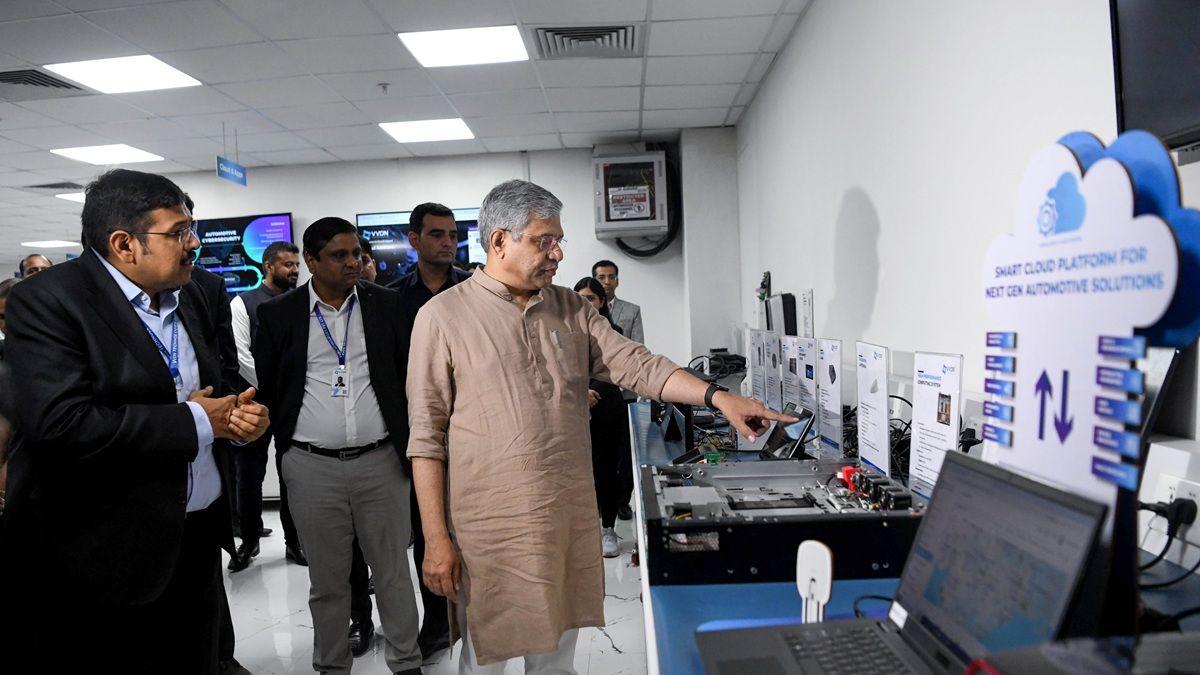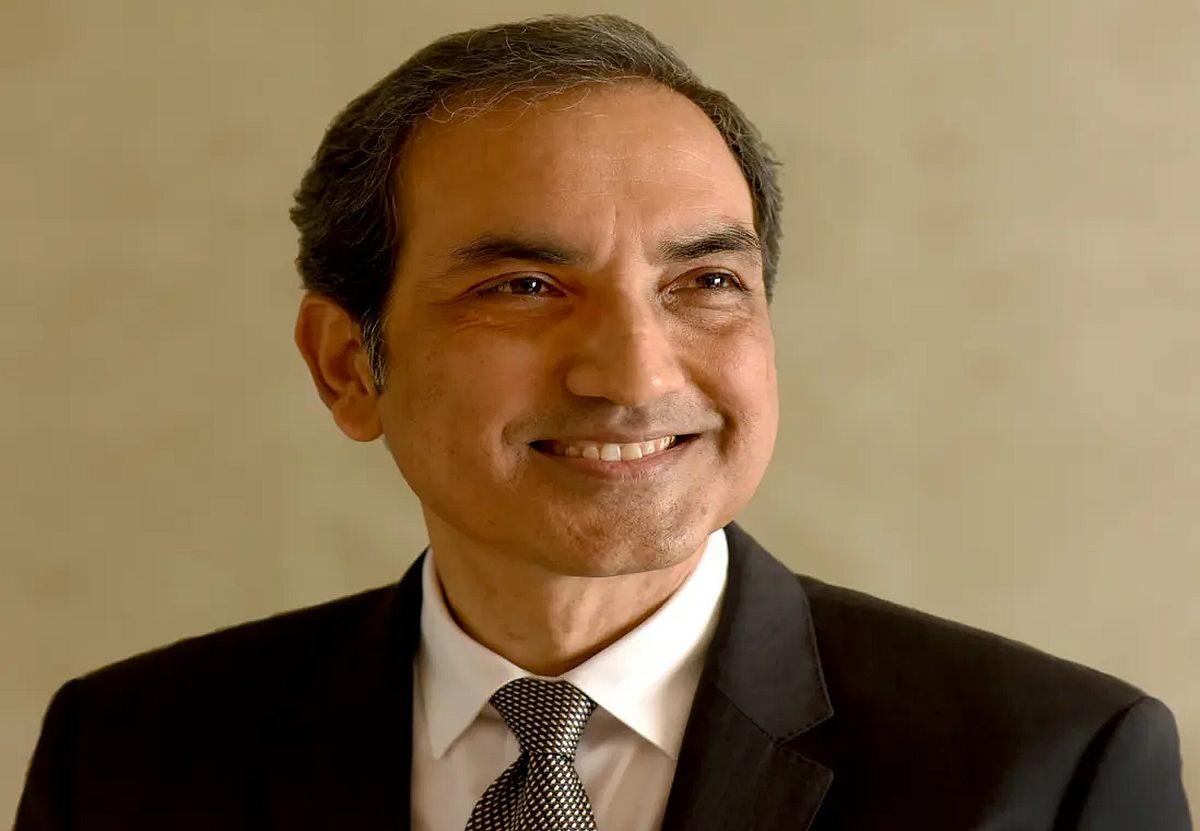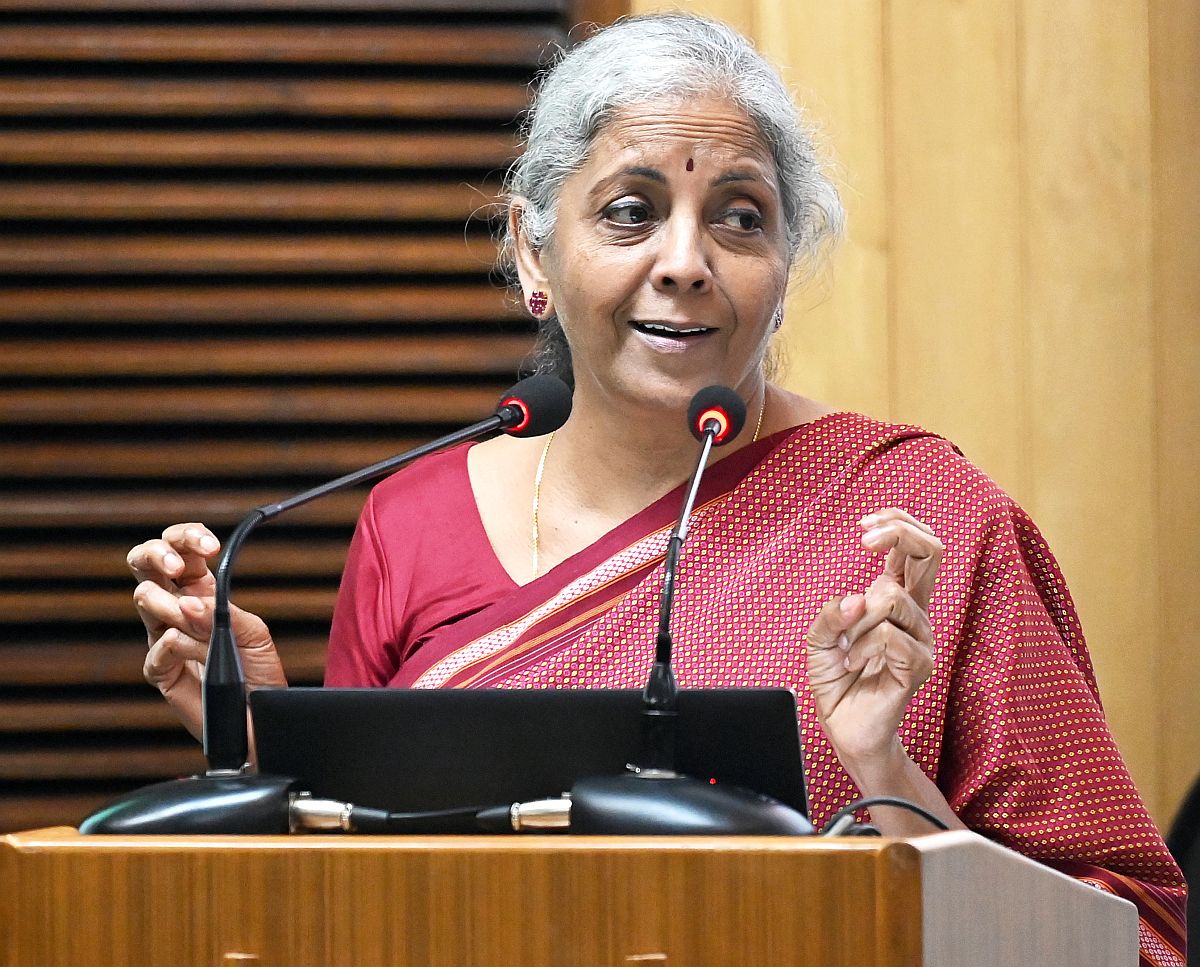‘I think that kind of change is coming. We should stay prepared for that change, whichever industry or sector we are in, we must be prepared.’

IMAGE: Union Minister Ashwini Vaishnaw, during the inauguration of the VVDN Technologies’ state-of-the-art Mechanical Innovation Park, at Manesar in Gurugram. Photograph: ANI Photo
India needs to develop artificial intelligence (AI) models built on domestic languages, culture, conditions, nuances, and social norms, Union Minister for Electronics and Information Technology (IT) Ashwini Vaishnaw said.
“We have taken up the development of models. One of the first ones is being developed by Sarvam. Three or four applications are already in the advanced stages of approval. We are also taking up common datasets as a part of this entire process,” the IT minister said at the CII Annual Summit 2025.
Akin to the advancements made in the semiconductor and electronics industry, AI will bring in ‘humongous changes’ in society and the industry, he added.
“I think that kind of change is coming. We should stay prepared for that change, whichever industry or sector we are in, we must be prepared,” the Union minister said.
The success that various digital public infrastructure tools and services (DPIs) have seen in India and across the globe is rooted in the government’s belief of democratising access to technology for everyone, instead of it being concentrated in the hand of few, Vaishnaw said, adding that the same approach was being taken for AI.
To ensure access to high-end computing for all, the government targeted ensuring access to 10,000 graphics processing units (GPUs) under the IndiaAI Mission. Against this target, the government had received bids for more than 18,000 GPUs in the first round of bidding, he said. Companies have already placed bids for procuring nearly 14,000 GPUs in the second round of bidding, he added.
The India AI Mission was approved by the Union Cabinet in March 2024, with a capital outlay of ₹10,738 crore.
The IndiaAI Compute Portal will provide access to these GPUs, as well as AI Cloud services to startups, application developers, researchers, and students. It will also allow end users to access a wide range of high-end GPUs, and facilitate AI research and innovation in the country.
The first ‘Made in India’ chips of the 28-90 nanometre (NM) range would be rolled out by the year-end, Vaishnaw said.
“There were people who criticised us for vying for semiconductor manufacturing. We targeted a particular segment, which accounts for 60 per cent of the market volume, using a targeted approach. At present, we have six units under construction. The first 28-90 nm chip made in India will roll out this year. We started manufacturing in 2022,” the minister said.

IMAGE: Prime Minister Narendra Modi with Union Railway Minister Ashwini Vaishnaw walks through the Locomotive Manufacturing plant of the Indian Railways following its inauguration, in Dahod. Photograph: ANI Photo
Like technology sandboxes, the government was also working on a new policy for trying and testing new ideas for the railways, he said. The railways ministry has an innovation scheme for startups operational currently, which will be supplemented with a regulatory sandbox mechanism to allow for testing and use of new technologies without being subjected to the full extent of regulatory compliance.
A sandbox is used in new technology areas like AI, fintech, and others to encourage innovation.
For the railways, most advancements have been in-house through the Research Design and Standards Organisation (RDSO) or foreign direct investment.
To counter this, the railways had launched a startup innovation mission to boost entrepreneurship and bring new-age technologies into the railway ecosystem.
So far, nearly 3000 entities have registered on the national transporter’s innovation portal, senior government officials said after the minister’s address.
Of these, 350 are startups, around 1800 are individual innovators, and 160 are research organisations. So far, 23 innovation projects, valued at ₹44 crore, have been awarded to innovators. Railways’ grant in these projects is close to ₹11 crore, the officials said.




